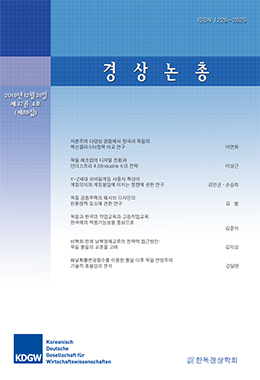4차 산업혁명시대에 들어서 교육 분야의 주목할 만한 변화는 무엇보다도 평생직업교육체제로의 전환일 것이다. 지난 2015년부터 한국에서는 기존 보건과 건강, 그리고 여가와 복지를 위주로 하는 평생교육프로그램에서 ‘직업교육과 연계’된 평생직업교육체제로의 전환을 시도하고 있다. 이제 직업교육이 중등단계를 넘어 고등교육 단계로 확장되고 있으며, 직업재교육을 포함한 평생교육과의 연계도 강화하고 있는 것이다.
한편 독일의 직업교육은 세계적으로 성공적인 직업교육 모델의 하나로 주목받고 있다. 기업주도의 직업학교(Berufsschule)의 커리큘럼 형성이나, 대학 주도의 이원화 고등직업교육의 학사과정(Duales Studium)에 기업이 적극적으로 참여하는 등 산학일체형 직업교육 및 고등직업교육을 시행하고 있기 때문이다. 이러한 독일의 직업교육의 장점은 다음 여섯 가지로 요약될 수 있으며, 특히 한국의 고등단계 직업교육에 시사하는 바가 매우 크다.
우선 독일의 직업교육제도에는 주로 산업체가 주도하고 있으며, 직업인 양성에 대한 사회적 기여정신이 강하다. 이러한 산업체의 기여정신의 기저에는 독일 국민들의 직업인식이 작동하고 있다. 나아가 독일은 조기에 진로 및 경력개발경로(career path)를 설정할 수 있는 지원체계가 구성되어 있으며, 기존에 설정된 경력개발경로를 수정할 수 있는 유연한 교육시스템도 잘 갖추고 있다. 그러나 무엇보다도 독일은 정부의 산학협력 관련 재정지원사업의 세부 프로그램 수행을 넘어 좀 더 과감하게 대학을 지역의 직업교육이나 평생교육에 개방하도록 유도하고 있다는 점에 주목할 필요가 있다. 또한 독일은 연방직업연구원(BIBB) 중심의 제도화된 직업훈련연구기관이 사회수요를 반영한 직업인력 양성에 체계적인 노력을 기울이고 있으며, 슈타인바이스대학의 사례처럼 독일은 일반 대학에서도 이론과 실무가 체계적으로 융합된 고등직업교육을 통해 산업현장의 요구를 수용한 인력 양성에 성공적인 결과를 도출하고 있다는 점에서 현재 한국의 직업교육구조에 시사하는 바가 매우 크다.
The most remarkable change in education in the period of the 4th Industrial Revolution would be the transition to a lifelong vocational education system. Since 2015, Korea has been trying to move from a lifelong education program focused on health, leisure and welfare to a lifelong vocational education system linked to vocational education. Vocational education now extends beyond secondary education to higher education and strengthening links with lifelong education, including vocational reeducation.
Vocational education in Germany has become one of the most successful vocational training models in the world. This is due to the fact that the company carries out vocational and tertiary vocational education in academia and academia, such as the formation of a curriculum of the company-led Berufsschule and the active participation of companies in the university-led duales studium of higher vocational education. The advantages of vocational education in Germany can be summarized in the following six ways, particularly for higher-level vocational education in Korea.
First of all, the German vocational education system is mainly managed by industry, and makes a strong social contribution to vocational training. The professional recognition of the German people is the basis of the contribution spirit of these industries. In addition, Germany has a support system for the early determination of career and career paths as well as a flexible education system that can change existing career development paths. Above all, however, it should be noted that, in addition to implementing detailed programs of government-funded funding projects, Germany is more aggressive in opening universities to local vocational and lifelong education. In addition, Germany specifically promotes workforce that meets the social requirements of the institutionalized vocational training institute with a focus on the Federal Vocational Research Institute(BIBB). In the case of Steinbeis-Hochschule Berlin (SHB) and Duale Hochschule Baden-Württemberg (DHBW), Germany systematically brings theory and practice together at general universities. This suggests a great deal about Korea's vocational education structure in that it has been successful in cultivating manpower that meets the demands of industrial sites.


